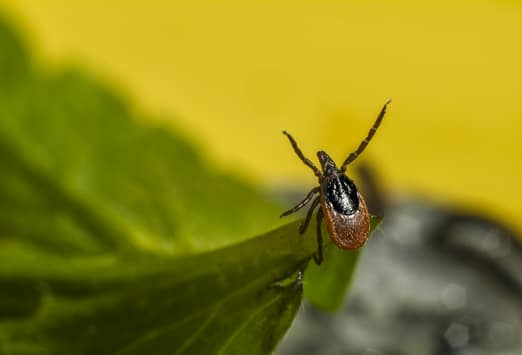AFRICAN TICK BITE FEVER

What is African Tick Bite Fever ?
African Tick Bite Fever is a bacterial infection transmitted by infected mosquitos. Symptoms of the disease usually presentwithin 2 weeks of the mosquito bite and include fever, headache, malaise and rash. At the site of the bite, there is a small red wound with a dark center.
Who is at risk for African Tick Bite Fever ?
People who travel to subsaharan Africa and in the West Indies are at the greatest risk, especially when doing outdoor activities such as camping, hiking, or hunting. Please note that the infected mosquitos are more active during from April to November.
What can be done to protect yourself?
As of now, there are no vaccines nor medications available to prevent African Tick Bite Fever. Nevertheless, there are several precautions that can be taken to avoid these ticks bites.
- Wear long sleeved shirts, long pants and a hat at all times. Tucking your shirt into your pants and your pants into your socks is the best way to prevent tick bites, as well as wearing closed shoes instead of sandals.
- Avoid going in to rural and wooden areas.
- Wearing mosquito repellent with at least 20% DEET is preferable. Make sure to follow the instructions on the bottle carefully as they can vary from one brand to another. However, all mosquito repellent bottles should read the following : Never put insect repellent in your mouth, on your hands or in your eyes. It is recommended to spray yourself 20 minutes after your sunscreen, however some brands can be applied seconds after sunscreen.
- Many specialty stores carry clothes and equipment that are sprayed with permethrin, a potent insecticide. Make sure that permethrin never touches your skin as it is a severe irritant, but having it on your clothing and equipment provides an ultimate protection against mosquito borne ilnesses, even after many washes.
What to do in case you find a tick on your skin !
- Gently remove the tick from your skin, while in a bath or a shower ;
- Do a thorough check of your entire body (belly button, under arms, back of your knees etc.) to make sure there are no other ticks. Do not hesitate to use a long mirror to make sure you didn’t leave out any body parts.
- Are you travelling with children ? Make sure to check them for ticks often, and even your family pet !
In the event that you fear you have contracted the disease, or generally feel unwell following a trip to an area at risk for the illness, please consult a doctor. Tell them about your recent travels, including your detailed itinerary and what activities you participated in during your trip.
We make every effort to ensure that the information posted on our website is up to date and accurate according to the latest public health recommendations; however, it is impossible for us to make changes on a daily basis.
For the most current travel health recommendations, please call our clinic as make an appointment with one of our travel health professionals.
